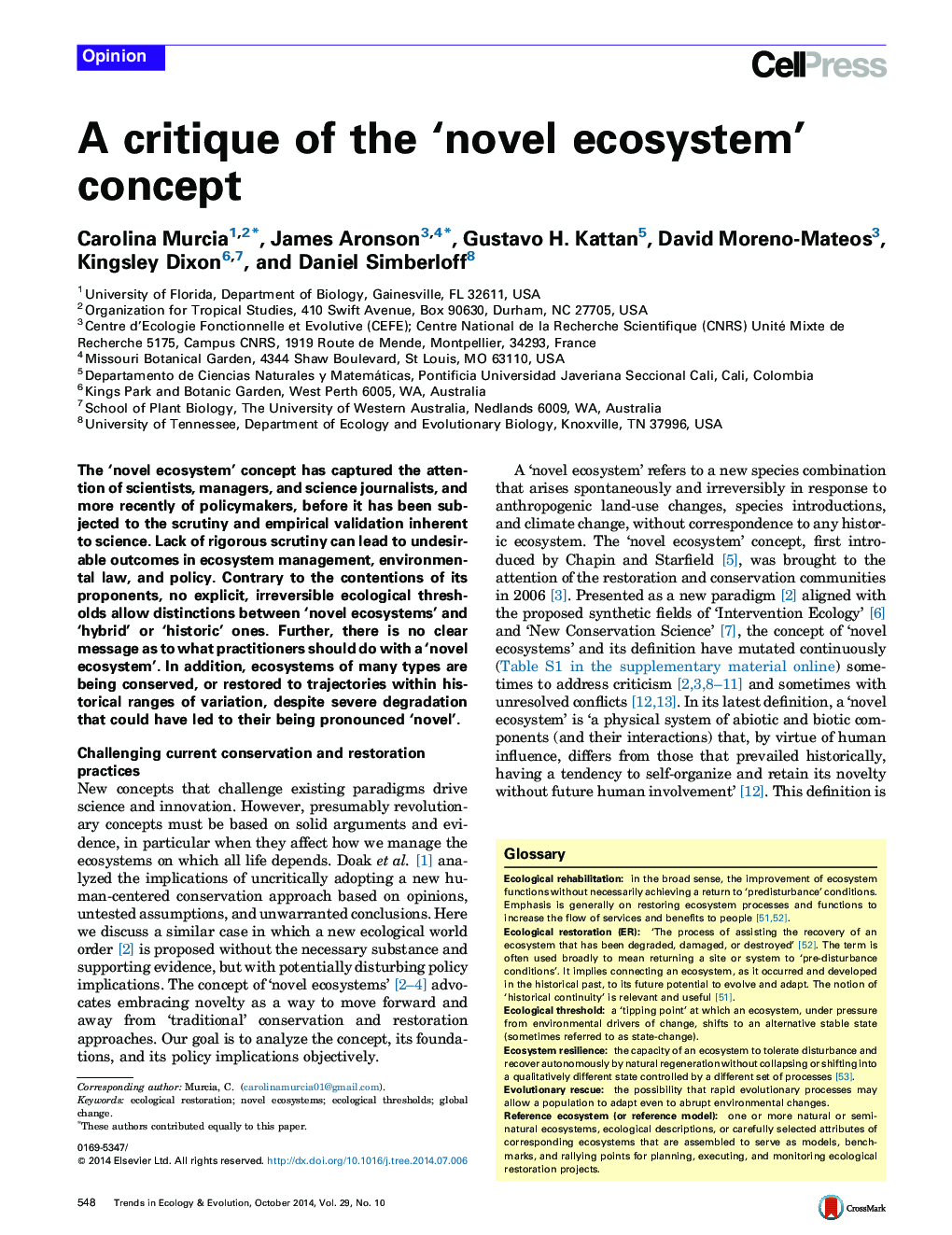| Article ID | Journal | Published Year | Pages | File Type |
|---|---|---|---|---|
| 142429 | Trends in Ecology & Evolution | 2014 | 6 Pages |
•The concept of ‘novel ecosystems’ is ill-defined and can lead to undesirable practical and policy outcomes.•Successful restoration projects abound in areas that could have been considered ‘novel’.•To develop a pragmatic and operational framework for deciding when and how to intervene in an ecosystem, ‘novel ecosystem’ proponents must first demonstrate when and why an irreversible ecological threshold has caused an ecosystem to shift to a new stable state.•Socioeconomic and political limitations to ecological restoration should not be confused with ecological thresholds.
The ‘novel ecosystem’ concept has captured the attention of scientists, managers, and science journalists, and more recently of policymakers, before it has been subjected to the scrutiny and empirical validation inherent to science. Lack of rigorous scrutiny can lead to undesirable outcomes in ecosystem management, environmental law, and policy. Contrary to the contentions of its proponents, no explicit, irreversible ecological thresholds allow distinctions between ‘novel ecosystems’ and ‘hybrid’ or ‘historic’ ones. Further, there is no clear message as to what practitioners should do with a ‘novel ecosystem’. In addition, ecosystems of many types are being conserved, or restored to trajectories within historical ranges of variation, despite severe degradation that could have led to their being pronounced ‘novel’.
